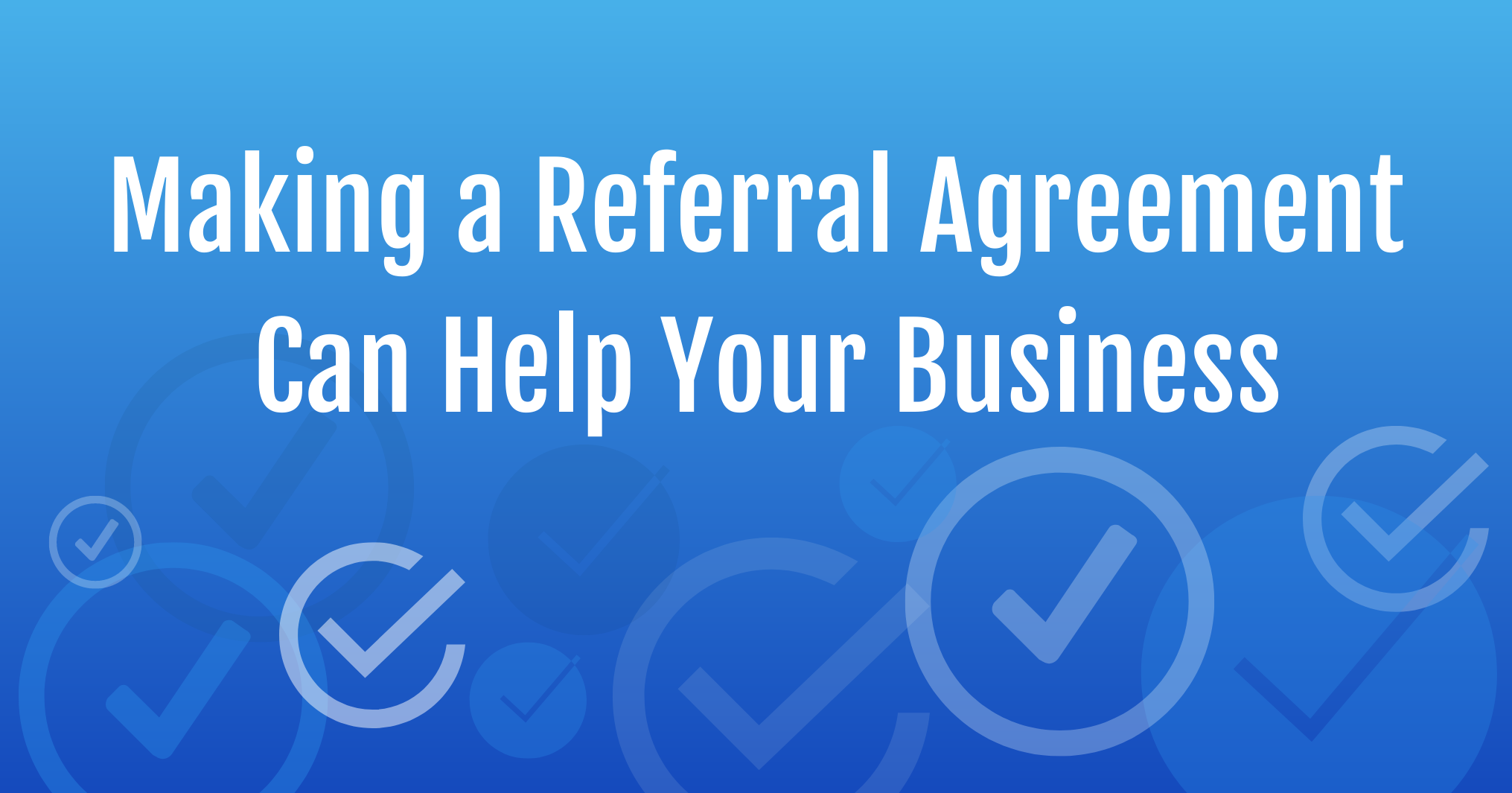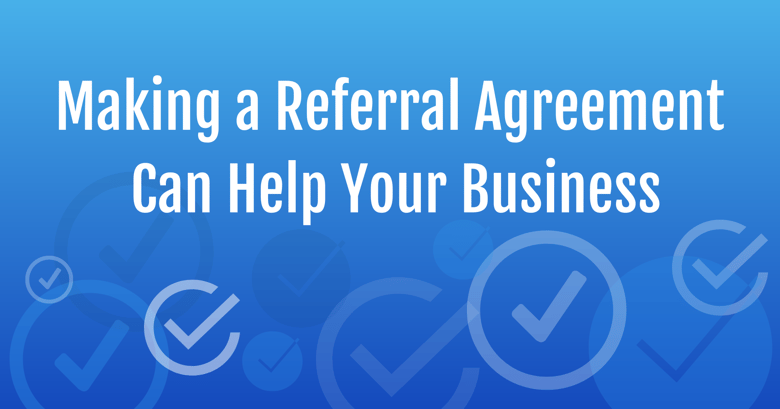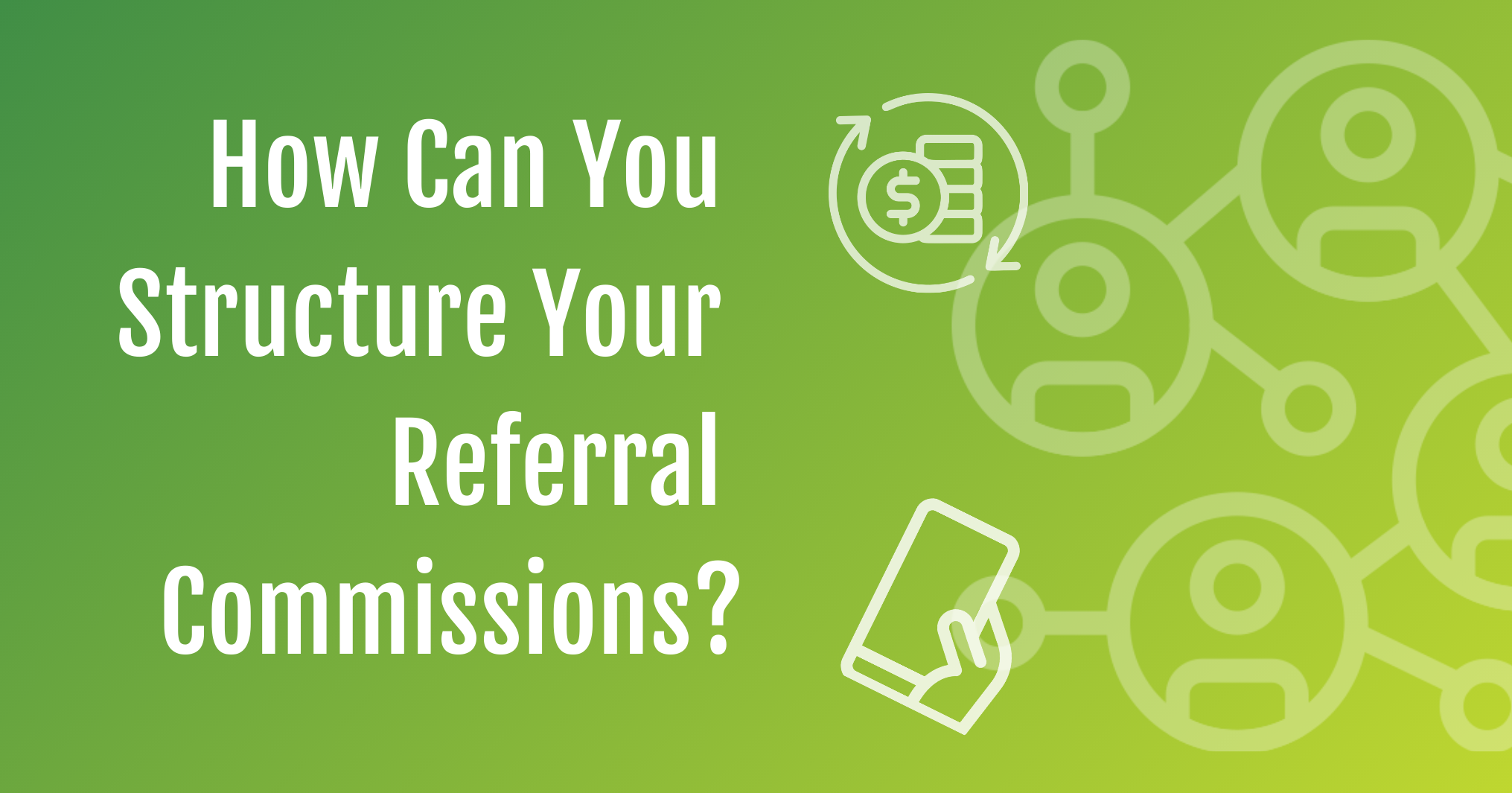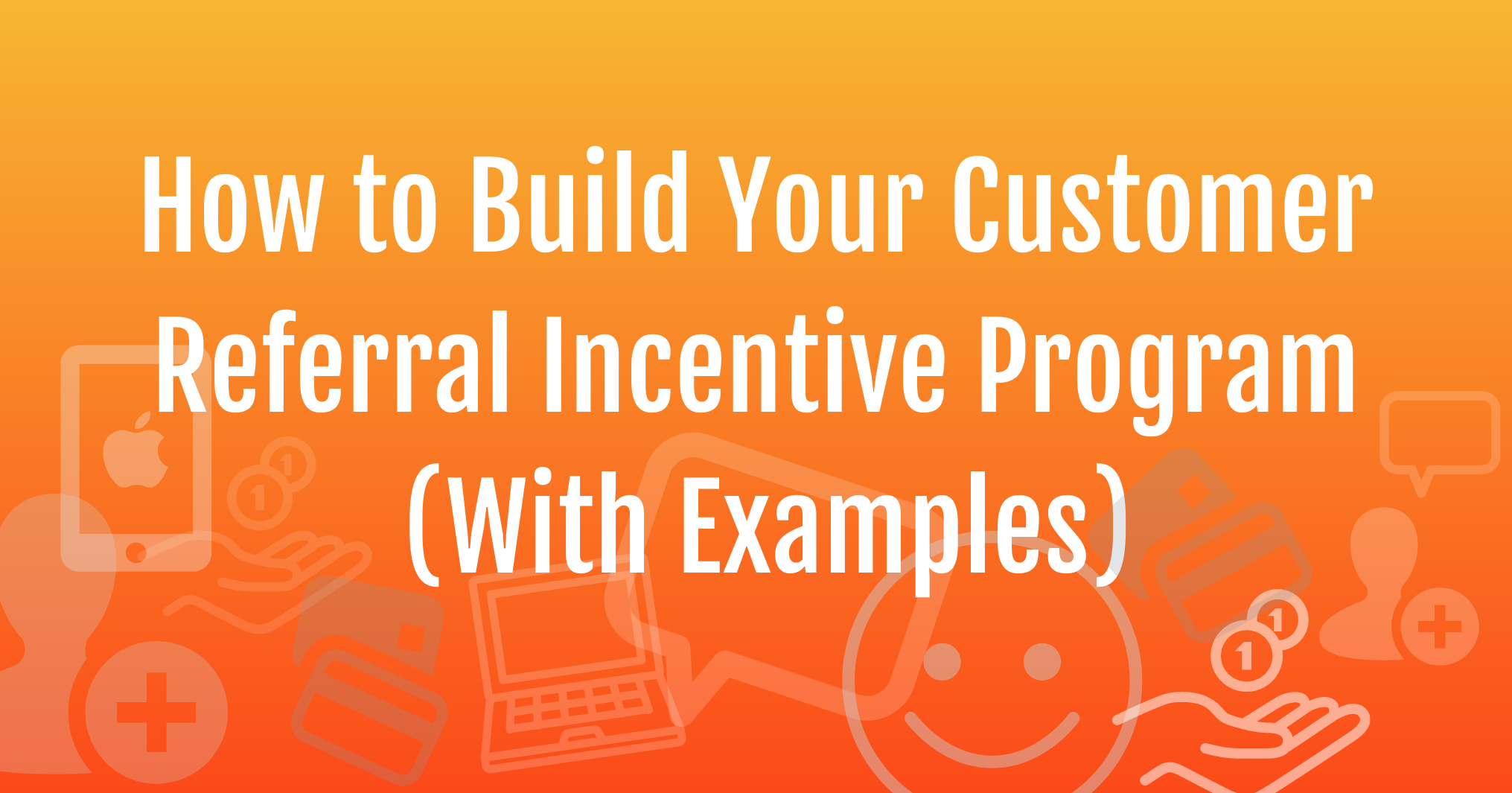How HeavySet Accelerates Bookings + Scales Growth for Home Service Pros
We love spotlighting partners who help home services businesses capture more opportunities, fill calendars, and boost sales. For January, we’re...
5 min read
Barbara Domingues : Updated on February 17, 2026


Key Takeaways
|
The easiest, most common way to create a referral fee agreement is to either use an existing one or create your own. While the former is the simpler option, the latter allows you to greatly customize your agreement so they are better suited to your industry and business needs, even though it implies more work.
In concrete terms, referral agreements are a document that binds two parties into a partnership, these being a business and a referral partner that will earn commissions on finalized sales. These agreements encourage the referral partner to refer potential clients to the business for the purpose of turning them into leads, new clients, and more.
They are very useful, but their terms can be complicated. Writing down the difference between qualified and unqualified referrals or a payout period for a completed referral so that both parties find the deal attractive is a challenge.
By creating your own referral fee agreement, you can tailor the terms to fit your business needs and keep it attractive to your referral partners. Not only that, but it also means you will be able to face any referral situation without changing your business plan drastically.
Why It’s Important to Have an Agreement?
While many small and even medium business owners still rely on the “honor system” for their referrals, doing so is only inviting trouble down the line. Why? Well, don’t picture anyone in particular while doing so, but imagine if you only do verbal agreements for referrals then find out that a partner is getting a bigger fee than you initially thought, or that a customer received less than promised and finds out.
It’s better to keep yourself and your business out of potential hot water like that, so it’s better to uphold your clients, referrals, qualified leads, and profits to a higher standard. What’s the solution? Referral agreements.
Because of all the advantages that a referral agreement offers, there really is no time to stop using them when you deal with referrals. Like we mentioned at the beginning, depending on a verbal agreement instead of putting down the terms in writing could expose you to some sticky situations.
If you are looking into launching a referral program successfully for your business, even if it is digitally (like through an app, for example), then you can simply turn the agreement into a digital document requiring a digital signature.
For starters, a referral agreement should clearly lay out the details of the relationship between both parties. If this agreement is B2B, then the referrer and the referee should be very clearly defined, as should be the way that one will pay the other. The same goes for an agreement between a business and a representative.
The referral agreement should state the duration of the agreement. You may prefer the agreement to be a:
1. short-term arrangement, such as two years; or
2. long-term arrangement, such as an ongoing contract that only ends when one party ends the contract for any reason set out under your agreement.
An ongoing referral agreement is unlikely to have an exclusivity clause or a quota for a minimum number of referrals. The arrangement is flexible, especially for businesses who are looking for a reliable source of customer acquisition.
On the other hand, a short-term agreement may be suitable if you are partnering with a business to promote a time-sensitive event.
Depending on the parties involved, a referral agreement may be short-term or long-term.
1. Short-term referral agreements are, for example, valid for two years.
2. Long-term agreements can be ongoing, ending only when one or both parties want to end their relationship through one of the clauses detailed in the agreement itself.
The latter is more likely to be used when the agreement is B2B, although a short one can also be used the first time both parties are working together.
The exact method to calculate the referral fee should be detailed in the agreement, including the targets and metrics used to reach that result. It should also be made clear that the referrer understands and accepts the calculation method described in the agreement, whether it is made automatically or if it is a commission based on the total sale.
It is also important to outline exactly when and how will these payments be made. This includes any expiration dates for referrals and payouts, should they be allowed. These terms are necessary to protect the party that is paying the referral from unfair demands or from being accused of holding out payments.
Set out how you would like the referral to occur. It can be as simple as one party providing the other party with details of the referral via email. However, you may want an online referral process where customers opt into the referral.
This clause refers to what constitutes a referral for the purpose of the agreement. This can range from one party simply providing the other with the details of the referral via email, but it can go as far as filling out a digital form with plenty of more minute details.
Since referrals deal with the exchange of personal information, such as a customer’s full name, date of birth, and area of residence, confidentiality is a priority, and your referral agreement should always comply with any privacy laws that apply to your industry and state regulations.
It should always be pointed out to your customers that their information could be forwarded to third parties, always before they enter their data into your system, and a way to opt out.
Building relationships with potential customers, generating high-quality leads, and boosting your profits are three of the most important aspects of keeping a business thriving. All of these can be bolstered and protected at the same time through a referral agreement (also known as a finder’s fee agreement).
Not only are your interests protected and your referrers happy, but you are also saving time and money by having the exchange be in writing. As we have mentioned in other blogs, a good lead is important, but it does not mean you have a closed deal. It is necessary to keep the referrals incoming, which means that your referrers should be happy, and a referral agreement will take care of that.
The best way to protect yourself and your business is to always do your due diligence when it comes to the contract. That way, even if other party files a complaint against you, the terms of the agreement will be on your side as long as both of you are equally bound by it.
We suggest that you keep copies of this document (whether physically or electronically) and all correspondence between you and any other involved parties during the referral process. This works both ways, as you can proceed against any party that doesn’t uphold their end of the contract.
While working with a finder does incur an additional cost per customer, if the price is right, a finder’s fee agreement might bring lots of new leads to your business.
Use the tips in this article to establish a fair and consistent finder’s fee agreement, and you will be on your way to reaching new customers, gaining access to new markets, and securing new business deals.
A finder’s fee means that you’re incurring an additional cost per new customer, but following best practices will mean that you are bringing in way more profit into your business than what you’re paying for it.
Use the tips outlined in this article to create a mutually beneficial referral agreement, and you will soon see it pay off. And if you want to focus on your business while still benefiting from the best referral structure in the market, you can check out all that Get The Referral can offer you.
A referral agreement is a written contract that outlines how referrals are submitted, tracked, and rewarded. It protects both parties by setting clear rules and prevents misunderstandings around commissions, timing, and expectations.
Yes. Even small businesses benefit from referral agreements because they eliminate confusion and reduce risk as referral volume grows. Informal or verbal agreements often lead to disputes once money is involved.
At a minimum, a referral agreement should define the relationship, referral qualification criteria, commission structure, payout timing, agreement duration, and confidentiality requirements.
Absolutely. Referral agreements can be shared and signed digitally and paired with referral apps or software to automate tracking, notifications, and payouts while keeping terms consistent.
Referral software ensures referrals are logged correctly, commissions are calculated accurately, and payouts follow the agreed rules. This reduces manual errors and keeps trust intact between businesses and referrers.

We love spotlighting partners who help home services businesses capture more opportunities, fill calendars, and boost sales. For January, we’re...

TL;DR: Roofing businesses are switching to referral software like GTR to turn customer satisfaction into a repeatable growth engine. GTR...
.png)
How to Accelerate Leads and Automate Referrals with ContractorFlow and GTR

Referral Commissions Referral marketing has so many benefits for your business that it’s easy to forget about rewarding the people that made those...
.png)
1 min read
Key Takeaways Referral rewards work best when they feel intentional, memorable, and aligned with your brand, not random or overly complicated.

Referral Incentive Program